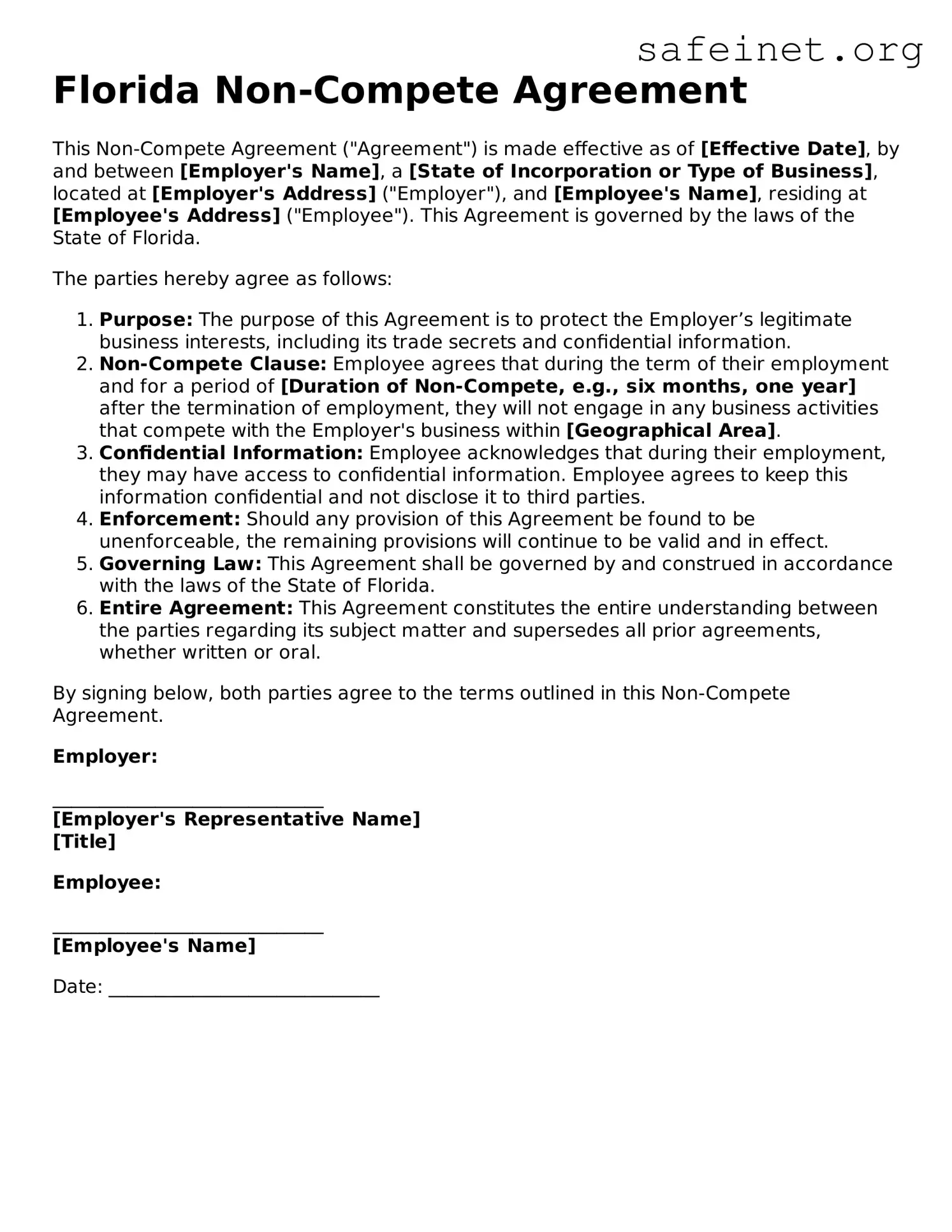What is a Florida Non-compete Agreement?
A Florida Non-compete Agreement is a legal contract between an employer and an employee that restricts the employee from engaging in certain competitive activities after leaving the company. This agreement is designed to protect the employer's business interests and confidential information.
What are the key elements of a valid Non-compete Agreement in Florida?
For a Non-compete Agreement to be considered valid in Florida, it must contain specific elements. It should outline the duration of the non-compete period, the geographical area where the restrictions apply, and the specific activities that are restricted. Additionally, there needs to be a legitimate business interest that the agreement is protecting.
How long can a Non-compete Agreement last in Florida?
Florida law does not prescribe a specific length for non-compete agreements. However, the duration must be reasonable and is typically limited to two years for most cases. Longer restrictions may be examined for fairness and necessity, depending on the nature of the business and its competitive landscape.
Is a Non-compete Agreement enforceable in Florida?
Yes, a Non-compete Agreement can be enforceable in Florida, provided it meets the legal requirements outlined in state law. However, if the agreement is overly broad or unreasonable, a court may deem it unenforceable. Legal advice can help ensure that the terms are suitable and defendable.
Can I negotiate the terms of a Non-compete Agreement?
Yes, the terms of a Non-compete Agreement can typically be negotiated. If you are presented with an agreement, take time to review it thoroughly and consider whether the terms are fair. It is advisable to have discussions with your employer regarding any clauses you find concerning and consult a legal professional for further guidance.
What happens if I violate a Non-compete Agreement?
If you violate a Non-compete Agreement, the employer may take legal action against you. This could include seeking an injunction to prevent you from working with a competitor or requesting monetary damages for any losses incurred due to the violation. Understanding the potential consequences beforehand is crucial.
Can an employer enforce a Non-compete Agreement against an employee in Florida?
Yes, employers in Florida can enforce a Non-compete Agreement against employees, as long as the agreement is reasonable and protects legitimate business interests. Enforcement may involve litigation, so employers often aim to resolve disputes amicably before taking legal action.
How can I determine if my Non-compete Agreement is too restrictive?
To determine if a Non-compete Agreement is overly restrictive, consider its duration, geographical scope, and the activities it restricts. An excessively broad agreement may not be enforceable. Consulting with a legal expert can provide clarity and help assess whether the terms are reasonable based on your industry and position.
What should I do if I am asked to sign a Non-compete Agreement?
If you are asked to sign a Non-compete Agreement, review it carefully. Evaluate the terms, and consider how they may impact your future employment opportunities. Seeking legal advice before signing can help you understand your rights and obligations, allowing you to proceed with informed consent.
